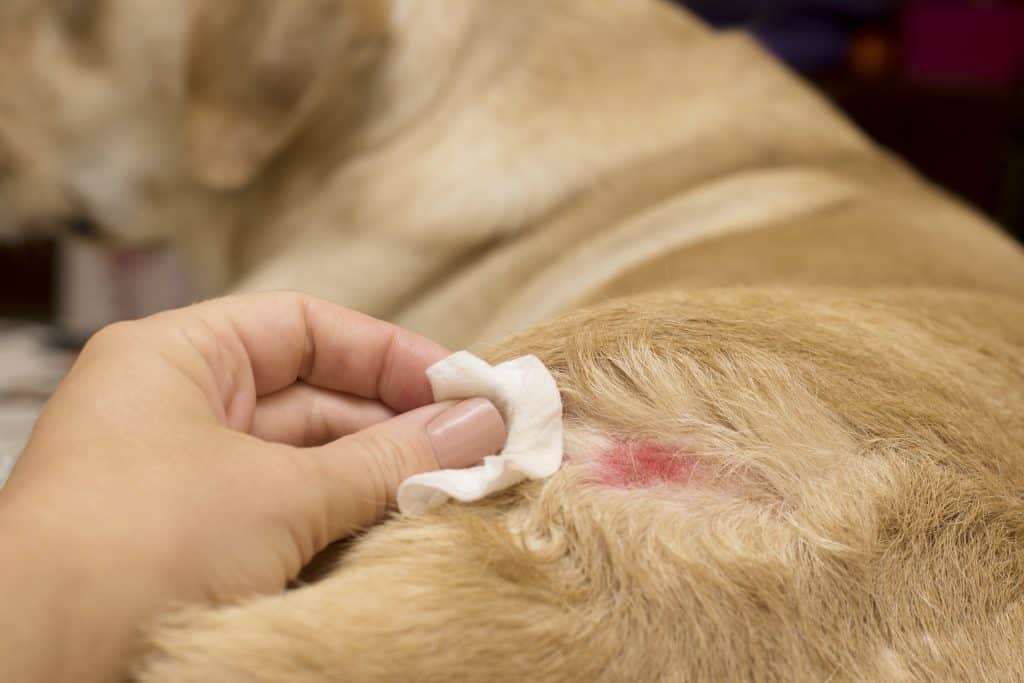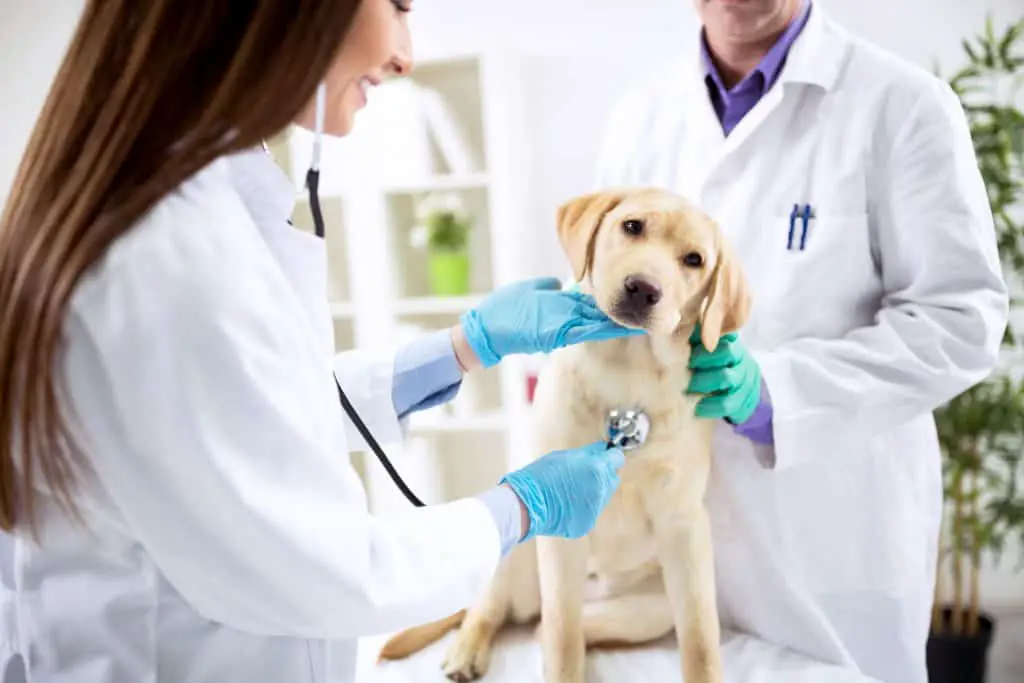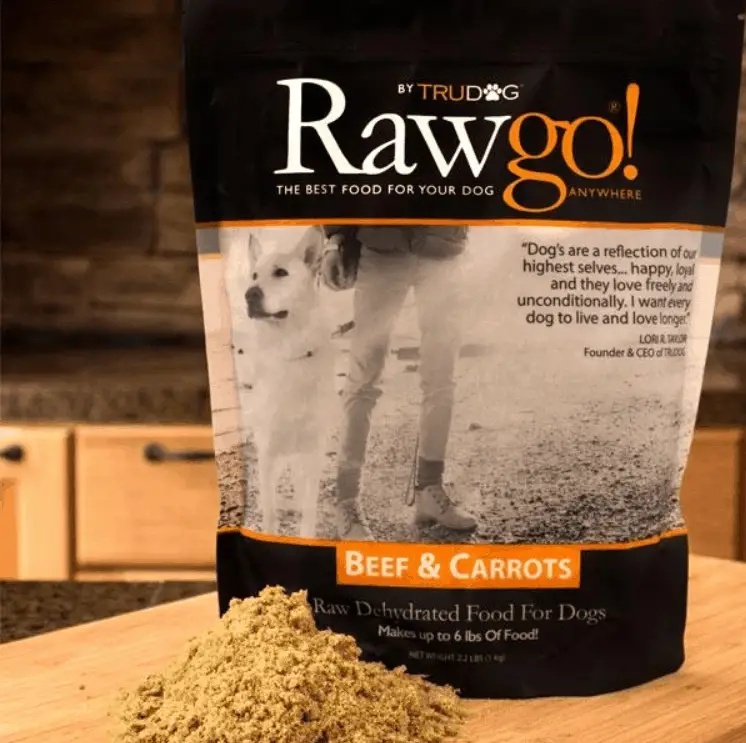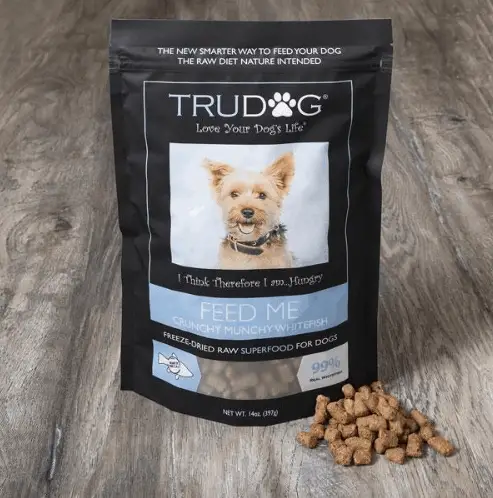
Almost every dog out there is prone to allergies, and sadly, Labradors are not an exception. There is a long list of possible allergens that can affect this dog breed, from food allergies to bacterial allergies and even fleas can produce allergies in our best friend’s body, So we must take care of them with the same amount of love and energy they show to us.

If you want to find a solution to your dog’s allergies, it is to know what causes these allergies and how they affect your dog’s health. The immune system of dogs acts in the same way as humans when we are exposed to allergens like dust, food, chemicals, or even bacteria, when our dogs come into contact with these allergens their organism tends to overreact by creating a lot of proteins called immunoglobulin E (best known as IgE) which produce a reaction that releases some histamines, that cause either irritation and inflammation problems in the dog’s body. Labradors are known to suffer from allergies because they produce a lot of IgE compared to other dogs’ immune systems, which means that we always have to be prepared to fight them to protect our best friend’s health.
Types of Allergies Common in Labradors:
It’s possible to find almost every type of allergy in Labs, beginning with the most common ones such as food, flea, or contact allergies, and also the rarest ones like certain categories of bacterial and inhalant allergies. If you want to help with your doggy condition, then maybe the best option is to take your friend to the vet as soon as possible before the allergy spreads all over the body, or, you can try to cure the allergy all by yourself, which isn’t impossible if the required steps are followed accurately, but before that, you should know at least the basic things about every type of allergy overall, so, let’s get straight to the list of common allergies in Labradors.
Food Allergies:
Food allergies are quite common in Labradors, these allergies are caused by a reaction to some proteins found in some ingredients in dog food. Ingredients that commonly cause allergies are dairy products, beef, lamb, chicken, chicken eggs, and soy. Food allergy symptoms can present as skin irritations or digestive problems such as diarrhea and vomiting. If your dog has these symptoms, feed him hypoallergenic food. The only way to deal with this type of allergy is to remove the ingredient to which your Lab is allergic from its diet. Do not forget to consult with your pet’s veterinarian as soon as you see any allergy symptoms in your dog.
Flea Allergies:
This is the easiest allergy to understand because it doesn’t have so much science behind it, the reason why dogs get allergies after they’re bitten by a flea. Is the simple fact that those annoying insects tend to deposit their saliva into your dog’s skin, which later causes some conditions in the body like hair loss and itching. The best way to avoid this allergy is to protect your dog from fleas, especially in the summer months because it’s the perfect time of the year for any insect due to the warm temperatures and humidity.
Contact Allergies:
Contact allergies are known as contact dermatitis and, as the name implies, they occur when the dog’s skin comes into contact with a substance that generates an allergic reaction. the symptoms of contact dermatitis are sore skin, inflamed patches of skin, itchiness, redness of the skin, scaling, thickening of the skin, fluid discharge from the affected area, and dry skin. The substances that cause this allergy can be many, from a household cleaning product, the fabrics of the dog’s clothes or bed, or some plant with which the dog had contact. The way to treat this allergy is by determining what caused it and preventing your dog from coming into contact with it again. In addition, the veterinarian can prescribe different medications that calm the symptoms
Inhalant Allergies:
Inhalant allergies in dogs are caused by allergens like dust, pollen, and mold. It’s known by almost everyone that Labs tend to be a very energetic dog breed, and they can inhale a lot of things while running in gardens or even smelling things inside your house, so, to put it in simple terms, it’s pretty much impossible to prevent this type of allergy. The symptoms of this allergy are respiratory problems and itching, determining the cause of the allergy can be very difficult so it is best to be attentive to your dog’s behavior and take them to the vet if you notice any type of respiratory distress
Bacterial Allergies:
Last but not least important, there are bacterial allergies which can be caused as a secondary infection due to poor management or treatment of any of the previous allergies, and it’s by far the most dangerous on the list because it can end in severe medical conditions that can compromise your best friend’s life. The best way to prevent a bacterial allergy is by giving proper treatment to any health issue that your Lab may have in the future, do your best!

Is your Dog’s Food Causing an Allergy?
Certainly, one of the most common reasons why dogs develop allergies is due to the ingredients in the dog’s food. This isn’t something to be worried about because food allergies in dogs are very common and it’s easy to either prevent or treat them. One of the most simple ways to avoid this type of allergy is by changing your doggy’s diet by adding food that doesn’t have any ingredients like corn, wheat, fish, soy, or chicken because they tend to cause some negative dermatological reactions in dogs which can lead into a more serious bacterial allergy in the future. Related post: Can Labradors Eat A Raw Meat Diet?
What to Feed a Dog with Allergy:
To determine what kind of food your dog can eat while suffering from an allergy, it’s very important to work with a veterinarian because they know what diet is better for every situation. Randomly eliminating some ingredients from your dog’s diet is a very bad idea because you don’t know what secondary effect that action can lead to in the future, but you can pretty much mess with the required balance of a diet and then your dog will suffer from either obesity or the contrary effect. The most probable thing that the vet will recipe for your dog is a “hypoallergenic diet” which can be very accurate to reduce the number of allergens in your doggy feeding environment, some recommended ingredients in this diet are lamb and rice.

Check out this related post: DOG ALLERGIES: ARE LABRADORS HYPOALLERGENIC?
How to Deal with your Dog’s Allergies:
There are multiple ways to deal with an allergy, however, everything will depend on which type of allergy your dog is suffering from, for example, we can’t expect that the treatment of a food allergy can work in the same way against a flea allergy because it doesn’t work in that form, so, to have a healthy lab you should follow some tips that have been granted by professionals in this topic to prevent any dermatological issue in the future.
Avoid walking your dog in the earlier hours of the day or late afternoon because at both times of the day the pollen levels are incredibly higher than in other hours, so it can reach your labrador’s nose and develop an inhalant allergy.
When you return home make sure that you clean the paws and body of your doggy with the help of cloth with a hypoallergenic fragrance to remove any pollen or dust that can be in the dog’s fur, make sure that the paws end well-cleaned because they tend to lick them very often.
Make sure that you bathe your dog very often with some veterinarian products that can help to prevent fleas and dry skin, in this way it’s possible to prevent any allergy related to fleas or dust.
You can’t just feed your dog everything, a properly balanced diet is pretty much required to have a long and enjoyable life. The best way of handling food allergies is by adding some supplements to your lab’s diet, some professionals recommend omega-3 and coconut oil and keeping the drinking water bowl clean and free of any allergens.
If nothing seems to work in your dog and the symptoms continue then it’s recommended to take your doggy immediately to the vet to obtain a more professional treatment based on fragrances and medicaments to reduce the scratching and hair loss or even the problems related to hair loss, remember, the vets know much better the dog’s body so you can trust them.
Remember that an allergy isn’t something to laugh at it and not do something because it can turn into something worse like a bacterial allergy that can even put your best friend’s life into something worse, so try to maintain your dog healthier than ever by following the previous tips that were recommended, good luck!
If you want to find the best pet insurance for your labrador, click here






